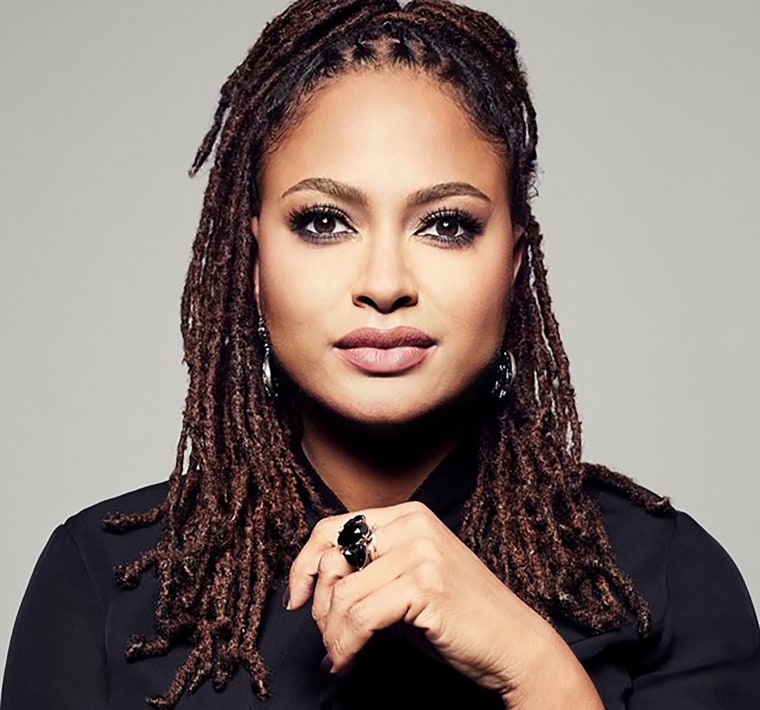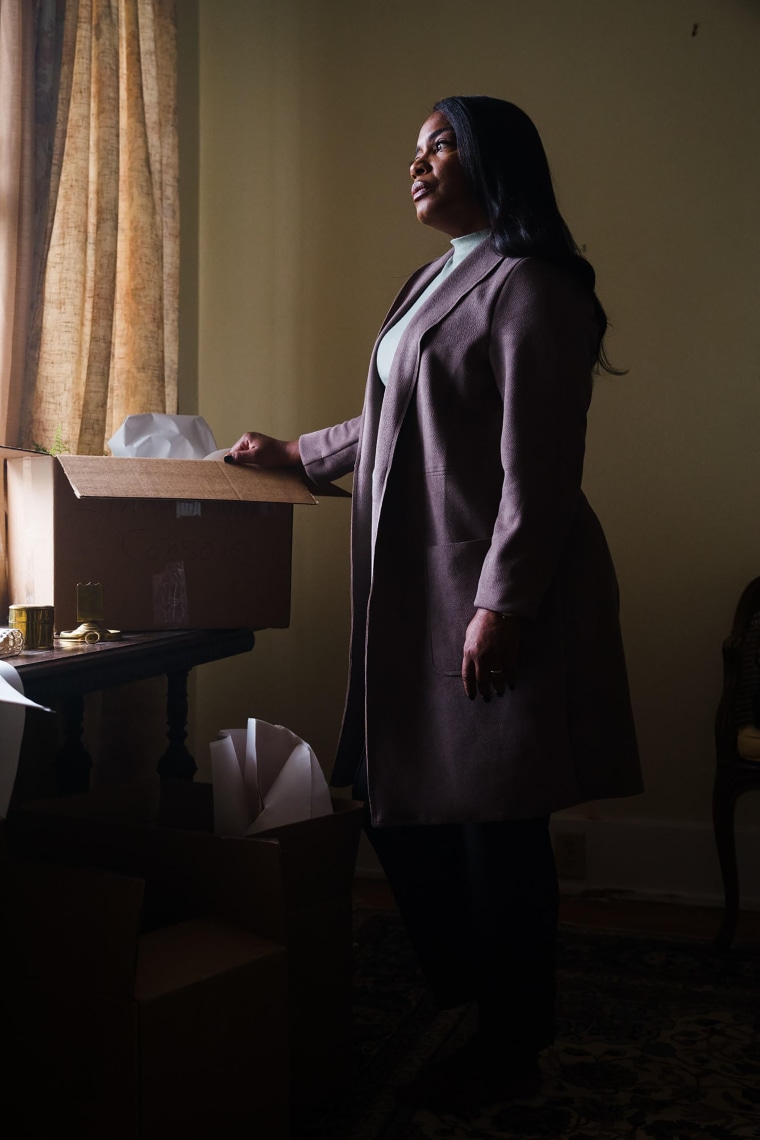Director Ava DuVernay has disrupted Hollywood by telling and supporting stories that most likely would never get the big screen treatment. “Origin” fits that mold.
DuVernay takes on the task of adapting Pulitzer Prize-winning journalist Isabel Wilkerson’s 2020 bestselling nonfiction work “Caste: The Origins of Our Discontents,” which argues that caste, a social hierarchy, is the overall framework to racism, antisemitism, and other forms of oppression and subjugation.
After a strong showing at the Venice Film Festival, where it received an 8 minute standing ovation at, “Origin” opens a broader theatrical run this weekend.
In opting to center Wilkerson, portrayed by Oscar nominee Aunjanue Ellis-Taylor, and her process of writing and researching the book, the “Selma” director ties the author’s intellectual challenges with her many personal ones. Caring for an ailing mother, grieving the sudden death of her husband and struggling with her dear cousin’s cancer battle, all while still working, is reality to a lot of people, not just those with New York Times bestsellers and a Pulitzer Prize. It’s an approach DuVernay admits she herself had not initially foreseen.
“As I was reading the book, I felt emotional,” she told NBC News in a phone interview. “I felt like there were revelations that would be better served through a narrative film rather than a documentary. So I had to set out to find characters in the book. And the character that I found most surprising was the author herself in that she writes in the first person here and there about her research. The thought was ‘let me use her beautiful journey to kind of travel us through [and] allow us to ride with her through her research.”
The audience response has been pleasingly varied, said DuVernay, who spent hours speaking with Wilkerson.
 Filmmaker Ava DuVernay.Courtesy of Neon and
Filmmaker Ava DuVernay.Courtesy of Neon and
“Some people are very focused on the grief,” DuVernay said. “Some people are focused on the romance between her and her husband and the ways in which that speaks to them. Some are very steeped in the history of the Jewish community, in the history of the Dalit community,” she said, referring to the population of people considered to be India’s “untouchable” caste. “Some people, their minds are blown about things they never knew — the fact that Nazi protocols were predicated on American race law. So, as I talk to people, after screenings, I get that personal response, and personal is different to everyone.”
In creating “Origin,” DuVernay found more than a lead to her film in Ellis-Taylor, with whom she worked for her Netflix limited series “When They See Us” about the since exonerated “Central Park Five.”
Ellis-Taylor’s energy was critical to bringing “Origin” to life, DuVernay said. “It was the most intellectually rigorous creative partnership I’ve had with any actor that I’ve worked with.”
“She was a partner [with whom] I could dig into every line, every scene, every gesture, and she really wanted to do that and, in many ways, demanded we do that,” DuVernay said of Ellis-Taylor, who has been most recently lauded for her portrayals of Venus and Serena Williams’ mother Oracene Price in “King Richard” opposite Will Smith.
 Aunjanue Ellis-Taylor in “Origin.” Atsushi Nishijima / Courtesy Neon
Aunjanue Ellis-Taylor in “Origin.” Atsushi Nishijima / Courtesy Neon
As to why the film resonates so strongly now with the Israel-Hamas war waging, Claudine Gay’s shortened tenure as Harvard’s historic president and other big headlines of the day, DuVernay, references her star Ellis-Taylor whose response in interviews about this film has been, “we’re always in these times.”
“There’s no time in our lives as adults that we’ve been in a time of peace, of dignity, of anything like that,”DuVernay said. “So, really the work is meeting a moment.”
How to meet and engage audiences is an ongoing question posed to Black films amplified by social media video of Ellis-Taylor herself distributing flyers outside a Los Angeles theater urging people to see “Origin.”.
When it comes to the industry’s ability to market films to Black women specifically, DuVernay responded that the issue was much larger. ”Some of the challenges I think are industry wide as it relates to not just reaching Black women or Black people, but Indian people, Latino people, Middle Eastern, North African people.”
Outside of industry concerns like box office earnings, marketing, and awards nominations, “Origin” satisfies her on both a personal and professional level. She traveled the world, immersed herself in world history and understood more deeply how her “identity has very concrete touch points with other people.”
As grand as this takeaway is, DuVernay’s breakdown is far more simple and relatable. “We made this movie, and it’s about caste, and it’s this big thing, but, within the big thing, is a very intimate thing. And it is the story of this woman, and the way that people who she’s lost, and the ways in which she decides to walk through the world after that loss, the way that she’s treated, the way that she decides to treat other people, and how that is really how she breaks caste.”
For more from NBC BLK, sign up for our weekly newsletter.
Ronda Racha Penrice
Atlanta-based writer Ronda Racha Penrice is the author of “African American History For Dummies.”
>>> Read full article>>>
Copyright for syndicated content belongs to the linked Source : NBC News – https://www.nbcnews.com/news/nbcblk/ava-duvernay-gets-candid-making-latest-film-origin-rcna134193










